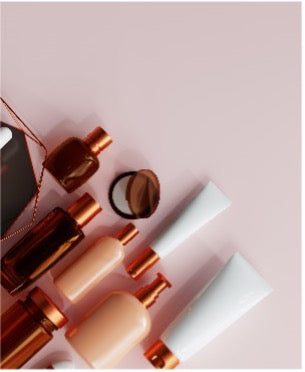
The Upsides and Downsides of Active Ingredients
Share
Retin-A is one of the hardest working active ingredients in
skincare. It has a proven clinical track record. However, for many
people it can be physically irritating.

Vitamin C works very well for brightening and evening-out skin tone. But regular use can lead to redness and irritation.
Other beneficial active ingredients also can have problematic side effects.
It is not uncommon to learn about the beneficial effects of an active ingredient and then begin using it regularly without paying attention to the all-important “acclimation” stage. This approach can cause irritated, angry skin that looks and feels worse than before the treatment. Some people wrongly blame the active ingredient, and conclude that their skin type is not suited for the new regimen. A majority of people, however, can safely
tolerate active ingredients if they follow a patient and reactive skincare regimen.

Patience
The reason that active ingredients such as Retin-A and Vitamin C are so popular is because they are genuinely effective – working on the skin’s surface, and at the skin’s subcutaneous levels. New skincare regimes require patience. I like to use “the novice at a gym” metaphor. If a person has rarely exercised and they suddenly start going to the gym 5 days a week performing intense sessions, they are more likely than not to injure their muscles, or even their joints and ligaments, and then stop going to the gym altogether. With skincare, we must slowly build up our skin to tolerate active ingredients. Most people should start with 1 to 3 times a week, and increase to every other day, with some ultimately tolerating daily use. Build-up of tolerance will ensure that you do not end up with irritated skin or abandon an ingredient that can enhance your skin in the long term.
Reactive
Skincare routines should be reactive. Our skin goes through changes as we move from puberty, into adulthood, and settle into our more mature skin. Weather, geography, hormones, stress, pregnancy, and major life events can wreak havoc on our skin. The skincare routine we used 5 years ago might no longer be the best care for our skin today. That is why we should routinely evaluate and reassess the needs of our skin.

During Winter, harsh cold weather makes our skin particularly susceptible to irritation -- so make sure to cut down on the number of times a week you use Retin-A based products.

During Summer, if you have been using Vitamin C containing products, make sure you are religious about applying sunscreen several times during the day. Lunaescent makes this task easier. You can apply sunscreen on the go without getting white sticky mess all over fingers and your things.
The downside of active ingredients is that the smooth radiant skin you have cultivated is especially susceptible to damage.
I have seen many friends return from a tropical vacation with melasma or dark spots on their face. If you know you will be travelling to a cold (skiing) or hot (beach) destination, plan to reduce some of the harsher active ingredients in your skincare in the weeks before your trip. If you’re not able to plan ahead, try to be religious about using sunscreen protection.
Your skin will thank you and reward you with the best version of you as you go through life.
